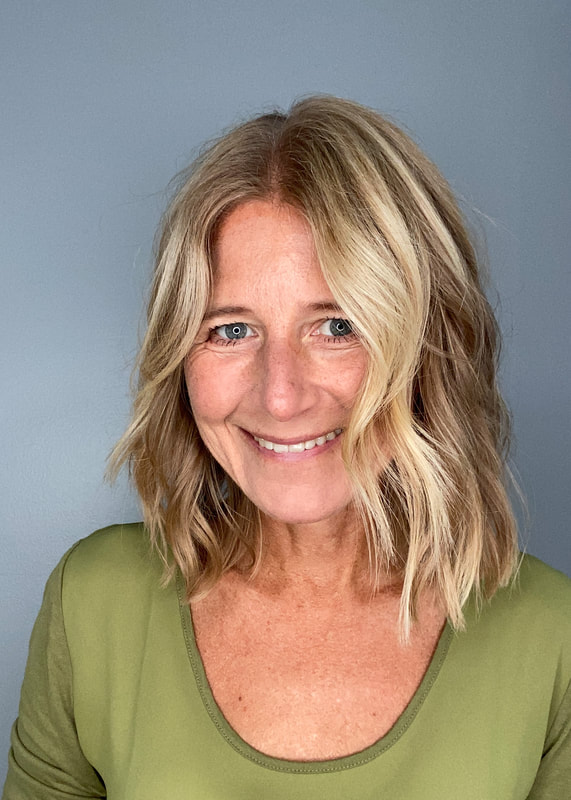|
Last week I was sitting on a bench in a local shopping area, with my dog at my feet. We are moving, and our house has been on the market for the last month, during which we have spent many 45-minute chunks at local parks, on benches, in TJ MAXX. Normally our dog doesn't get out much as we have a fenced yard and a dog-walking-friendly street, and she is too big and energetic to bring on errands. Well, that's what we thought, until this last month, when we have had to bring her along. Turns out she no longer runs away or howls at everyone. Who knew. Anyway, I was on this bench, and a couple was headed my way. I had been playing this mental game with myself, guessing which store people were headed toward. I guessed this couple was headed to the liquor store (most people were). The woman sat down on the bench next to me, while her male companion continued on (to the liquor store). She didn't say anything to me but out of the corner of my eye, I instantly knew she was currently or had recently struggled with a combination of self-injury ("cutting") and drug addiction (injectibles). I turned to her and said hello, and started a conversation. In the ten minutes we shared a bench in my quiet, relatively affluent little CT town, she shared with me that she struggled with bipolar disorder and a couple of other brain health disorders, and that she had stopped taking her medication but had just decided to put in for a refill. The man was her boyfriend, and she was grateful to him, she told me, for his patience with her. They had walked at least a mile, because his car "doesn't work right now." I asked her if she has children, and she became more sullen, admitting she has a daughter, who is being raised by her daughter's dad. She told me that her daughter was turning five the next day. She hoped to see her for her birthday. By now, her boyfriend was headed our way, so I asked her if she would consider going back on her meds, for her daughter's sake. She said that yes, she would do that. The interaction sat with me for a while. Later that day, a friend of mine who is an ER nurse in another state, shared how pervasive alcohol and other drug-related incidents drive people to the ER. She often shares ER stories of young people (in their 20s, 30s, 40s) who are at end-stage liver disease due to alcohol, the stories most people don't hear about because usually if you think of this type of death, you are probably picturing old men. At least I used to do so. My friend also shared how dismayed she is by the lack of compassion on behalf of the medical staff, toward people who are suffering from the disease of addiction. When someone enters the ER with other chronic disorders, they tend to get a much better response from the staff, as well as the insurance company. Not for the first time, it occurred to me how much today's epidemic of addiction to drugs (which certainly includes alcohol) reminds me of leprosy. Leprosy was first reported in 600 BC in India, China and Egypt. Since then, it has been considered a "curse of God," often associated with sin. It did not kill the person suffering from it, but it was chronic and seemingly endless, lingering for years, causing tissues to degenerate, deforming the body. People were terrified of leprosy and out of fear of contagion, shunned those afflicted with it - friends and family included. Well, then Jesus showed up and in his badass rebellious way, treated lepers with compassion, touching and healing them. Right now, if you are paying any attention, you know we have this crisis in our country (the U.S.), where according to the former Surgeon General: "In 2015, over 27 million people in the US reported current use of illicit drugs or misuse of prescription drugs, and over 66 million people (nearly a quarter of the adult and adolescent population) reported binge drinking in the past month. Alcohol and drug misuse and related disorders are major public health challenges that are taking an enormous toll on individuals, families, and society. Neighborhoods and communities as a whole are also suffering as a result of alcohol- and drug-related crime and violence, abuse and neglect of children, and the increased costs of health care associated with substance misuse. It is estimated that the yearly economic impact of substance misuse is $249 billion for alcohol misuse and $193 billion for illicit drug use." The report also talks about the fact that in spite of the fact that most Americans have been touched personally by substance use disorder (either themselves or a loved one), "few other medical conditions are surrounded by as much shame and misunderstanding as substance use disorders. Historically, our society has treated addiction and misuse of alcohol and drugs as symptoms of moral weakness or as a willful rejection of societal norms, and these problems have been addressed primarily through the criminal justice system. Our health care system has not given the same level of attention to substance use disorders as it has to other health concerns that affect similar numbers of people. Substance use disorder treatment in the US remains largely segregated from the rest of health care and serves only a fraction of those in need of treatment." A few years ago I wrote a blog entry about how every single one of us is at risk for addiction. Around then is when I started to question my own relationship with alcohol, especially as I was intrigued with mindfulness and was incorporating mindfulness into my daily living. Or at least, trying to do so. Increasingly, as I looked at myself, and others in various stages of addiction, I became convinced that addiction is but a symptom of a deeper problem. Around the same time, I acknowledged to myself that I have a primal need for connection. Social situations that feel frivolous to me leave me feeling empty and frustrated. Small talk, light reading (eg "beach books"), many mainstream movies and TV shows - complete waste of time and somewhat torturous. There are many reasons people today are relying on glamorized beverages, pain relief in a pill or powder, and other means of creating a false connection with others, or a relief from their current uncomfortable state. That is a whole other blogpost. Today, I specifically wanted to point out what I see as our current collective moral weakness. I do not think it's a coincidence that as we as a society have become more reliant on technology, on acquiring STUFF, on looking a certain way that defines beauty and success - our rates of addiction are skyrocketing. We are spending more time consuming media than we are spending communing with our loved ones in nature. We may be incredibly connected in virtual ways, and in superficial in-person ways, but real, deep connection, that can only come from honest, vulnerable connection, seems to take a deep nosedive from the time a kid first gets an iGod until - well, I don't know. It is crazy to me how cruel our society is to those whose brains have succumbed to the disease of substance use disorder, from people who share awful, shaming media reports about very sick human beings, to a medical system that sends these people right back out on the streets. I am pretty sure that if Jesus were alive today, He would be making the rounds of certain street corners, as well as places where lawyers, doctors and other people who are mired in shame because of their addiction, are hanging out. The way we blame, shame, ignore, incarcerate human beings who have often had a traumatic childhood or incident, are often extremely sensitive, and are now very sick - is indeed a society moral weakness. The way our medical system today is based less on prevention and healing than on saving and making money (I am referring to the system, not necessarily medical professionals - who, by the way, are often themselves engaging in potentially unhealthy behavior, and risk enormous stigma if they admit to it). The problem today is rather overwhelming, and it is easy to jump into the blame game. The pharmaceutical industry, the ineffectiveness of the D.A.R.E. program, the government, disconnected parents, drug dealers, materialism, internet-based drug markets, Big Booze, genetics, football culture, peer pressure, stressful living, Mommy Time-Out Wine, company happy hours, college application, Boards, violence that results in trauma... Yes, it's complicated. It's all true. But blaming is not exactly helpful. When that woman sat next to me on the bench, after talking with her for ten minutes I had a pretty good idea of which factors from the above list had led to her current condition. But what I felt she needed in that moment, was someone who was listening to her. Who didn't shy away, or at least as bad, ignore her. I do not know if she ended up getting another prescription for her brain disorder. Or if she went to see her daughter on her fifth birthday. I pray that she did. But in the time that she was in front of me, I did not pick up my iGod, or move away from her. I saw her. I don't know if it made any difference to her, but it did to me. If we could all do our best this way, I think maybe things may start to slowly shift a bit. We may not be Jesus, but we can certainly emulate Christ-like kindness and humility. I think maybe just doing that goes a long way in healing those who are ill, if not physically, certainly on the level of the soul. I think that collectively, if we start to move toward a more spiritual approach to living, the shift will start to happen. Our fellow humans who right now are suffering, are the canaries in the coal mine, alerting us that we are totally out of whack in terms of priorities and values. We can all do our part, one human to another. And let's start at home- in the one home we will always have on this earth, our own body. Let us be kind to it, listen to it, move it, feed it what it needs, rest it. And then, let us extend that kindness to others. Stop judging. Stop making assumptions. Stop treating those with substance use disorders as if they were lepers. I urge you to check out the following resources, if you want to do your part in this national crisis. Book - Chasing the Scream (Johann Hari) TED Talk - Everything you think you know about addiction is wrong Addiction is a brain disease - presentation by Dr Ruth Potee "How we respond to this crisis is a moral test for America. Are we a nation willing to take on an epidemic that is causing great human suffering and economic loss? Are we able to live up to that most fundamental obligation we have as human beings: to care for one another?" - Dr. Vivek Murthy, former U.S. Surgeon General
1 Comment
|
Susanne NavasWellness coach, athlete, mom, entrepreneur. I love helping people mindfully reboot their health & joy. Archives
February 2023
Categories |


 RSS Feed
RSS Feed